Oh, the places you’ll go!
Dr. Seuss
Attention, attention! This is my last LEARN blog post with the goal of reflecting on my working here. It’s a daunting experience to pluck out gold nuggets from the past 15 years. It’s my last post because I’m proud to announce that I’ll be returning to the classroom in August and starting a new chapter in the continuing adventure of Ben Loomer.
I’ll be the first to admit that 15 years is a funny chunk of time. It seems similar to how a friend once described parenthood. “The years are short and the days are long”. My work at LEARN has been a major part of my professional identity and I want to share a few snapshots of what I have experienced and played a role in accomplishing.
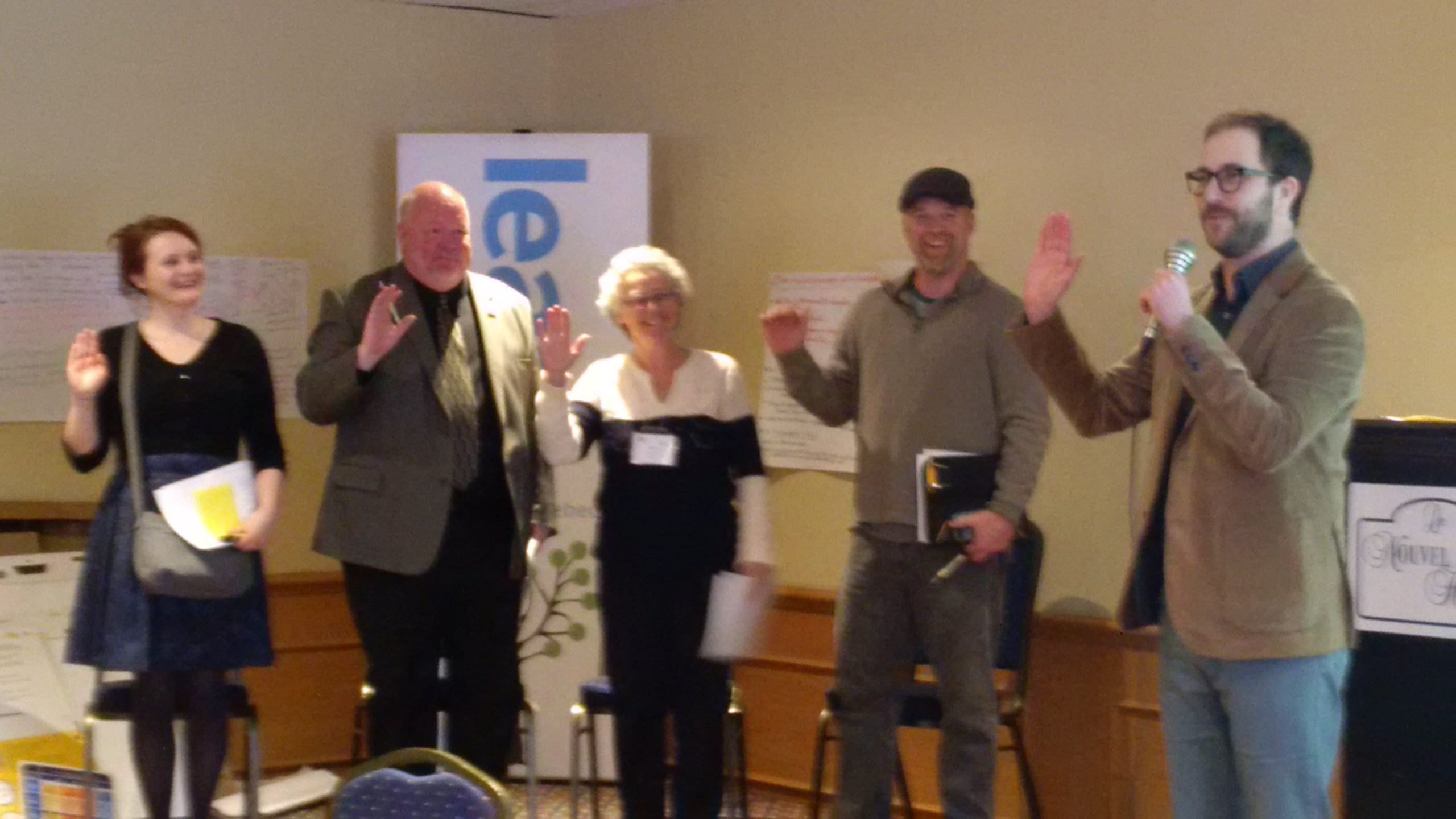
Swearing in the judges at Teacher Institute – Dragon’s Den activity
Without a doubt, it has been an extraordinary experience where I learned so much. It’s been a real privilege being able to contribute to good things in Quebec’s English Speaking Community and education system.
The theme of this post is gratitude for being able to work with an amazing group of people. The best work was done in collaboration with others, where the sum is greater than the whole of its parts.
My story at LEARN starts something like this…I was teaching ERC, ELA, History and Geography at a small school with the English Montreal School Board and decided to take a few years off to work on a Master’s Degree. As I was wrapping up my studies I was fortunate to be in the right place, with the right skills to get a position that allowed me a role in the development of the Community Learning Centre’s, Quebec’s Community School Network.
My experience as a classroom teacher, a healthy interest in organizational development and strategic planning along with a Western Canadian attachment to Quebec’s linguistic minority community encouraged by a stint of time working on the Magdalen Islands and seeing the reality of a small Anglophone community in a wider Francophone population.
Under the leadership of Paule Langevin, I had the amazing experience to help nurture a network of Community School’s with the dual goals of contributing to community vitality of Quebec’s English Speaking Communities and student success. Among my dossiers was the chance to promote the idea that students can learn from the community, and address authentic needs through Community Service Learning projects – that I write about in the Bloomer report. To put it a different way, in what ways can teachers develop projects that engender a sense of belonging and active citizenship?
If you’re reading this and know what I’m talking about. I tip my hat to you.
The work involved supporting Community Development Agents (CDAs) and school staff to tap into the benefits of school-community partnerships. I had the great pleasure to visit many of these communities and witness the successes that came with bringing people together to work on achieving common outcomes like access to health services or increasing opportunities to read and write in English and French.
This experience brought me into schools across Quebec to lead trainings, host community conversations and build up relationships with dedicated Community Development Agents (CDAs), teachers. principals and community partners. People contributing to transformative change through collaborations. Working with community partners and identifying assets that can support the English-Speaking Communities.
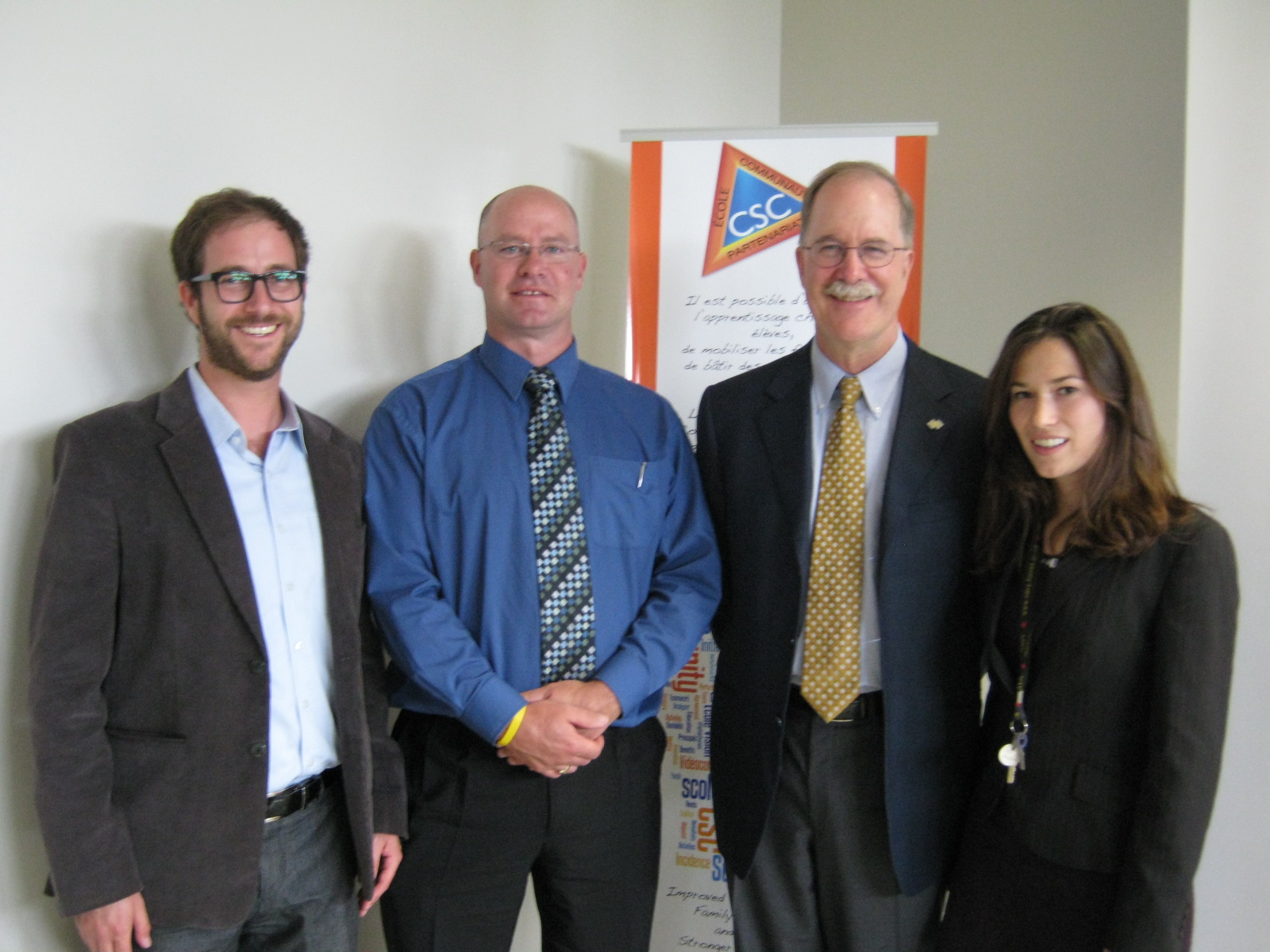
Grosse Ile CLC launch with Principal Hugh Wood, Graham Fraser, Commissioner of Official Languages, Nancy Clark, CDA
This work was done by a Provincial Resource Team (PRT) of 4 or 5 people and it was an extraordinary experience working together. I learned so much and appreciate the opportunity to work through a process, or as we like to call it, an eco-cycle where we can see the evolution of strategies. This framework is important to be intentional in adapting, or even dropping activities and strategies when a situation or context changes. I’ll note that it was a real benefit to include people with a background in Human Systems Intervention (HSI), a program from Concordia University as part of the PRT. It really upped the innovation and clarity of workshop design. As a teacher, it really underlined how each moment should be connected to the overall purpose. I learned a ton and it’s something that I hope to bring into the classroom.
As a quick aside, when I first started with the CLCs, videoconferencing was a thing. Now it seems funny since we have the same technology on our phones but at the time it was wondrous and a challenge to make the experience engaging. It was really interesting to use this very clunky piece of technology as a means to plan and offer workshops to people a thousand kilometres away. This is something that we take for granted now, but at the time it was pretty innovative stuff! I used to pretend I was hosting a kids’ TV show when hosting sessions with students.
Teacher Institutes
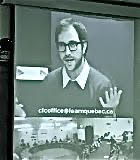 Looking back, some of my proudest contributions include planning and facilitating three different CLC Teacher Institutes that saw teachers come together from across the province. The purpose of the institutes was to engage teacher leaders in the development of Community Service Learning (CSL) projects – which specifically included community partnerships. We used the word institute versus conference because co-learning was key. From the list of attendees, we knew experts in leading engaging projects already existed in the room. We organized a few showcase presentations on inspiring projects happening in Quebec. But there was no sage on the stage that was going to go on and on. We already had the right people in the room!
Looking back, some of my proudest contributions include planning and facilitating three different CLC Teacher Institutes that saw teachers come together from across the province. The purpose of the institutes was to engage teacher leaders in the development of Community Service Learning (CSL) projects – which specifically included community partnerships. We used the word institute versus conference because co-learning was key. From the list of attendees, we knew experts in leading engaging projects already existed in the room. We organized a few showcase presentations on inspiring projects happening in Quebec. But there was no sage on the stage that was going to go on and on. We already had the right people in the room!
The inspiration from these institutes were many. A pedagogical strategy like Community Service Learning is not a hard science. It’s a collection of principles and best practices that together foster engaging learning opportunities in the local community. At its best, it sees youth addressing authentic needs in the community while curriculum connections are being practiced.
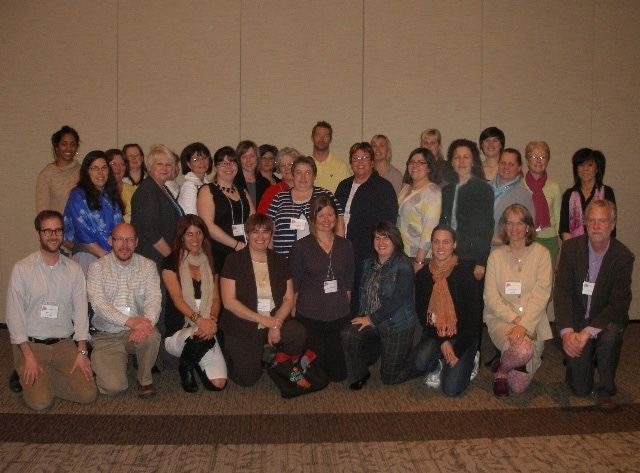
First CLC Teacher Institute
Some of the ideas that stand out include the development of an early literacy book called C is for Coast which celebrates the unique dialect of Quebec’s English Speaking community living on the Lower North Shore (aka the Coast). A related idea that I remember was a project that promoted the use of French as an important life skill. Students developed interview questions to pose to English Speakers in the community that used French in their professional life. The authentic need addressed was around employability. I also loved student-created books that celebrate local history, made possible through intergenerational interviews with community members. Two great examples are Conserving History Through the Generations products of an elementary and high school in the New Frontiers School Board (NFSB). Not only are these books examples of authentic writing. They also teach young people to talk to adults and learn through meaningful conversations.
You can see different examples in a document entitled Community Service Learning: Projects that make a difference! It was put together a few years ago and captured some of the different themes and authentic needs that students and teachers worked on. If you’ve been involved in great Community Service Learning projects, I encourage you to share them far and wide. I truly think the more we celebrate the successes, the more we normalize the messy process that produces outstanding learning experiences.
The fact is English schools in Quebec are unique! It’s complex and it makes sense for Quebec teachers to take the lead and share projects that in many cases involve celebrations of heritage in two languages.
There were many workshops that created space for teachers to network, plan projects using planning templates and bring innovative ideas back into their local schools and classroom. Did it always work? No. But when it did, it was thrilling to get emails and pictures celebrating what was accomplished. My gratitude goes out to those who bought into the vision and contributed to the success by sharing their experiences of what worked and the impact it had on students in their school community. I encourage you to check out the Community Service Learning section on the LEARN website. It includes planning templates in English and French.
On a related note, I had the chance to produce a few podcasts that capture the stories of teachers. This podcast is also called The Bloomer Report. Check it out!
Sometimes I think what I’m decent at is beating a rough path, so talented teammates can bring their special talents through a clearing. I need to name-check Sab Bonfonti and Paule Langevin (again) who were extraordinary colleagues that I learned so much from. Among the many lasting contributions was the ability to recognize what was happening with Canada’s Truth and Reconciliation Commission on Residential Schools. Building upon the Teacher Institutes, they mobilized educators and partner organizations at the forefront of educating schools and youth about Indigenous Perspectives and the legacy of residential schools. Opportunities such as the Project of Heart and The Blanket Exercise showed CLCs and LEARN the necessary direction to move in and be a stakeholder in implementing the TRCs recommendations specifically around education. You can read more about this work on the Ed4Rec section of the LEARN website. This work around Education for Truth and Reconciliation continues at LEARN, check out the Wakelet where resources and ideas are shared. Over the next year LEARN is loaning out the giant Indigenous People’s Atlas of Canada, check it out and see how you can bring it to your school or community.
The Teacher Institutes also created the space to work more with LEARN’s Pedagogical Services Department. I had the chance to work with so many smart educators with expertise in the Quebec Education Program (QEP) and the energy and inspiration to consider how a competency-based curriculum can be enhanced using strategies like design thinking, creative project-based learning and a growth mindset. I will be a better teacher for having been in the room discussing and planning tools and workshops. My hat goes off to LEARN colleagues like Julie Paré and Sywia Bielec for their collaboration on developing teacher planning tools that help scaffold ideas into solid projects that make a positive contribution to a local community.
My orientation around the CLC approach was making connections between teachers, partners and resources. I got energized by collaborating with colleagues, creating a common vision, brainstorming together and then working together to make dreams a reality.
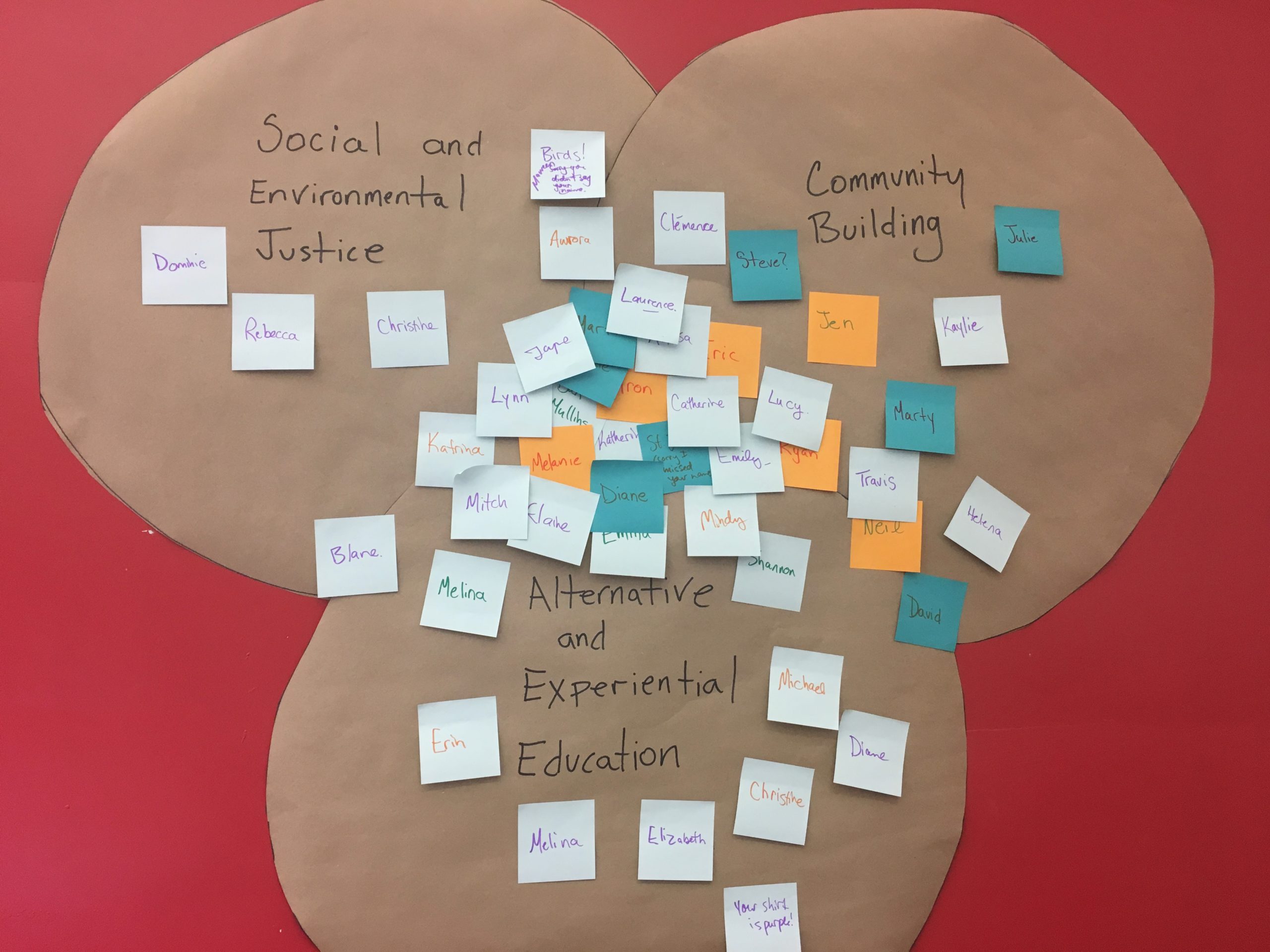
Garden Institute at McGill
Among the benefits of working at LEARN was the chance to use a design thinking approach to create tools and professional learning experiences as the needs of the English Speaking Community became apparent. An example is tapping into the energy of teachers wanting to bring in opportunities to teach about environmental sustainability in the school and classroom. The gap was not access to materials, since an extraordinary amount of resources for teachers exists, but rather the missing pieces were opportunities in Quebec for teachers in English Schools to network and learn from each other’s experiences.
So I helped develop what went on to be called the Garden/Harvest Institute which brought together educators and community partners to McGill University to learn and share how school gardens are rich places to learn about food security, wellness and learning about the environment and sustainability. The institutes and later the online Environmental and Sustainability Education Institute were really special because they were not just a place to learn about the important topic and the resources available. But also a chance to connect with like-minded educators. I really got the sense that it was important to know that even if you were one person in a school who was a champion for the environment and sustainability, there was a whole network of other teachers with the same passion. This was encouraging!
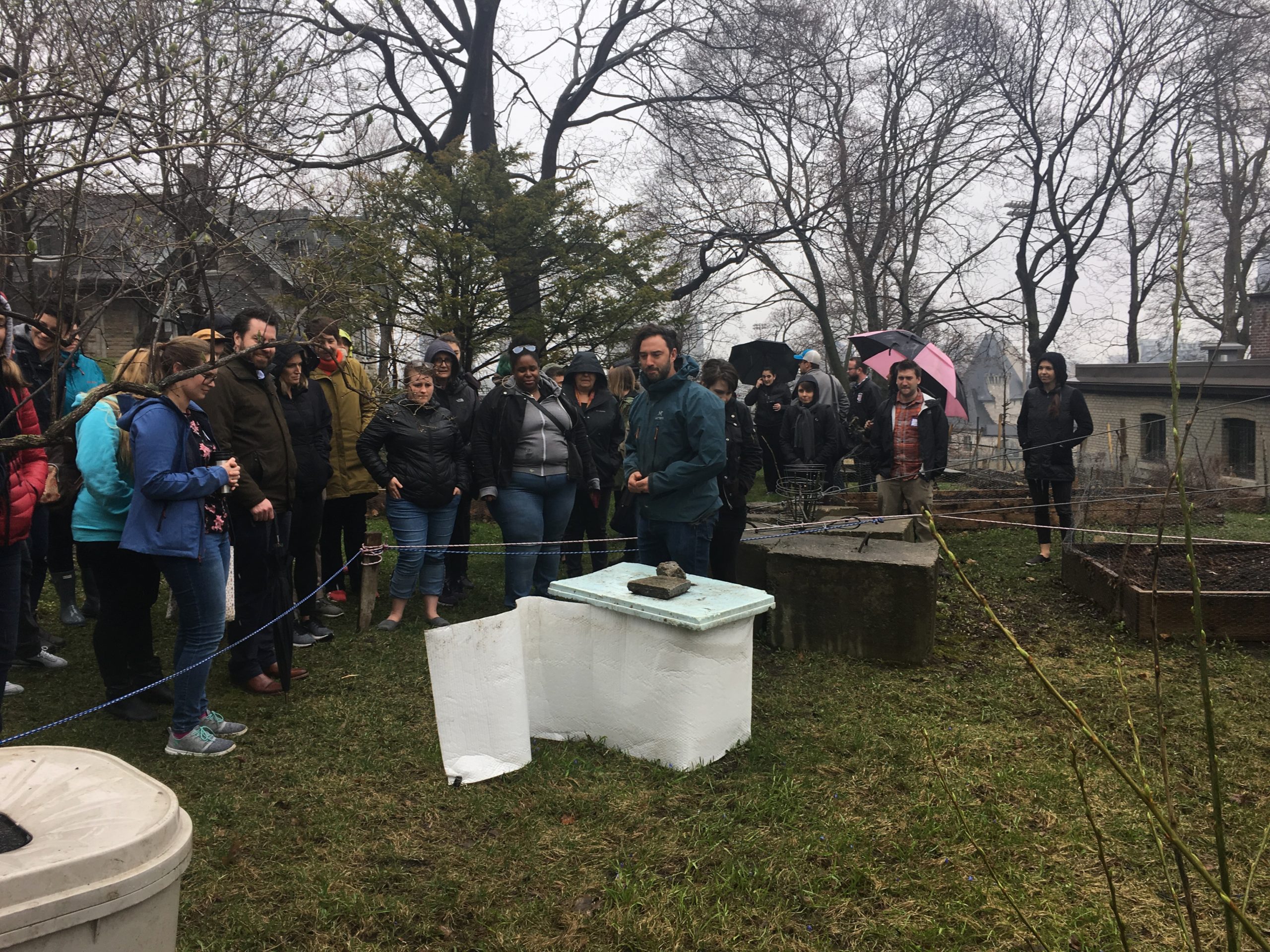
Harvest Institute at McGill
As I sum up this story, I realize how many moments of hard work and collaboration I have had the pleasure of being part of with stakeholders of Quebec’s English Speaking Communities. I have had the pleasure of working with individuals and organizations that genuinely have sought to have positive impacts on their community. A lot of this work is made possible because Canada and in a complex way, Quebec recognizes that linguistic minorities exist and that stakeholders work collectively to support their ongoing vitality. I recognize the work of organizations like the Community Health and Social Services Network (CHSSN) that have been a true partner in seeing the big picture and also recognizing that real action takes place on a grassroots level.
As a member of the Community Learning Centre and LEARN team, I’ve had the chance to lead and the chance to follow. It has been a truly enriching experience that I will bring into the classroom and hopefully benefit my students. I am enough of a student of history to know that most individual characters fade away into the sands of time. But I do hope that some of my efforts to the collective whole have been helpful.
In any case, I’m still around. I’m joking that I look forward to participating in a workshop, versus organizing it! I look forward to a new chapter that includes inspiring a new generation of students to take on the future challenges and opportunities that life still has in store for us. How will the story unfold!?
Featured image:
En route to Harrington Harbour


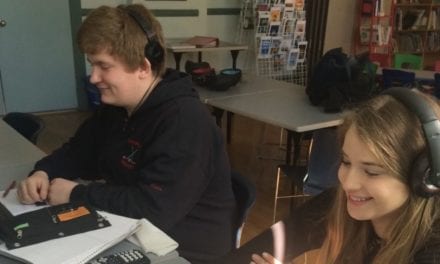
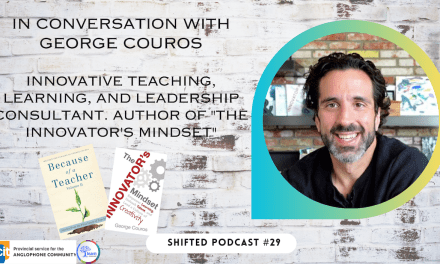

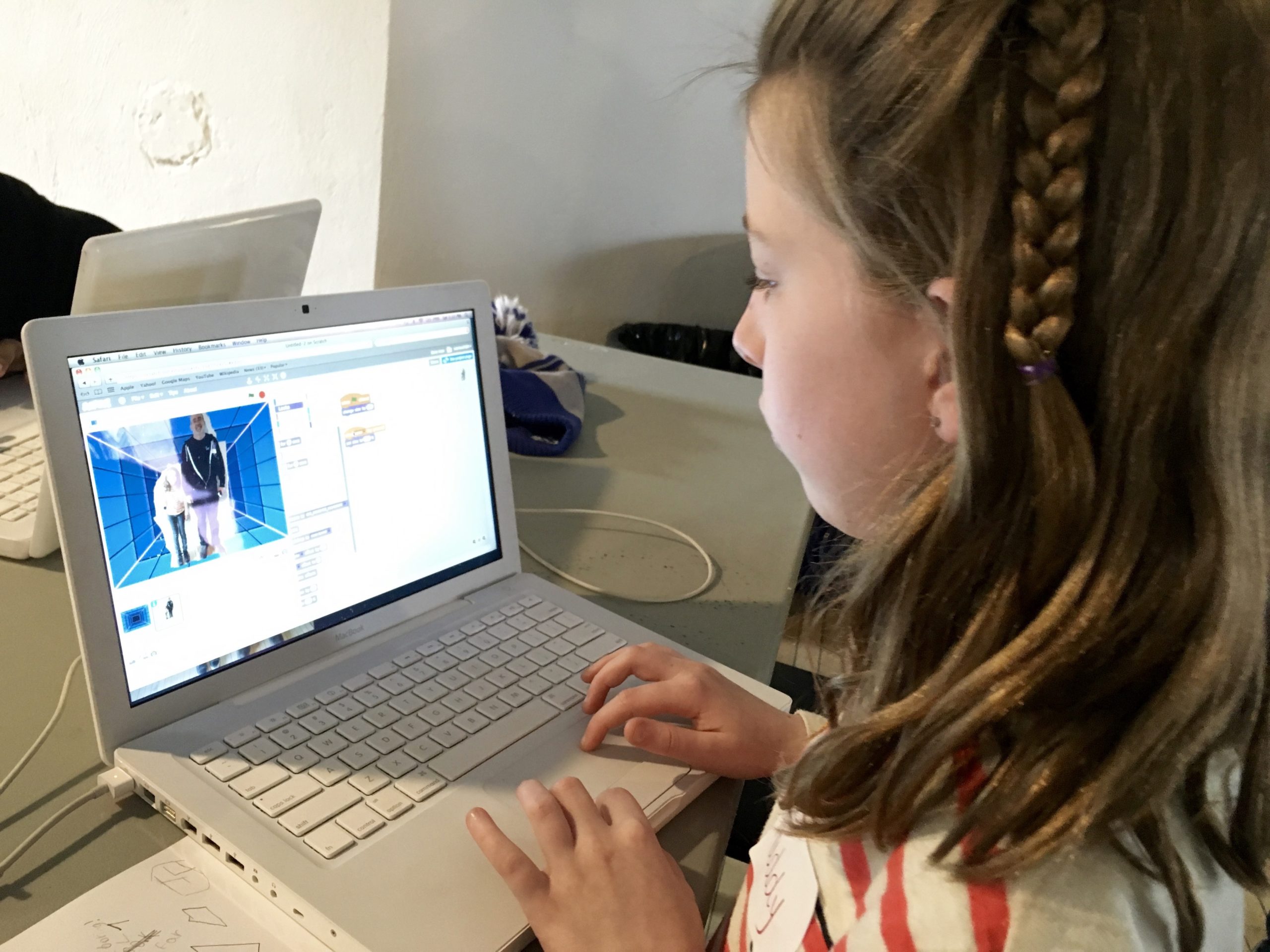
It’s been quite a journey Ben and this post paints a beautiful picture of your positive impact on the English speaking community of Quebec (and beyond). Not bad for a kid from Alberta! Best of luck on your return to the classroom. The students are not better or worse than they were 15 years ago. They are just different…And, so are you!
You’ve got this Ben.
Dr. Seuss even guarantee’s your success at 98.75 %.
“Today is your day! Your mountain is waiting. So…get on your way”.